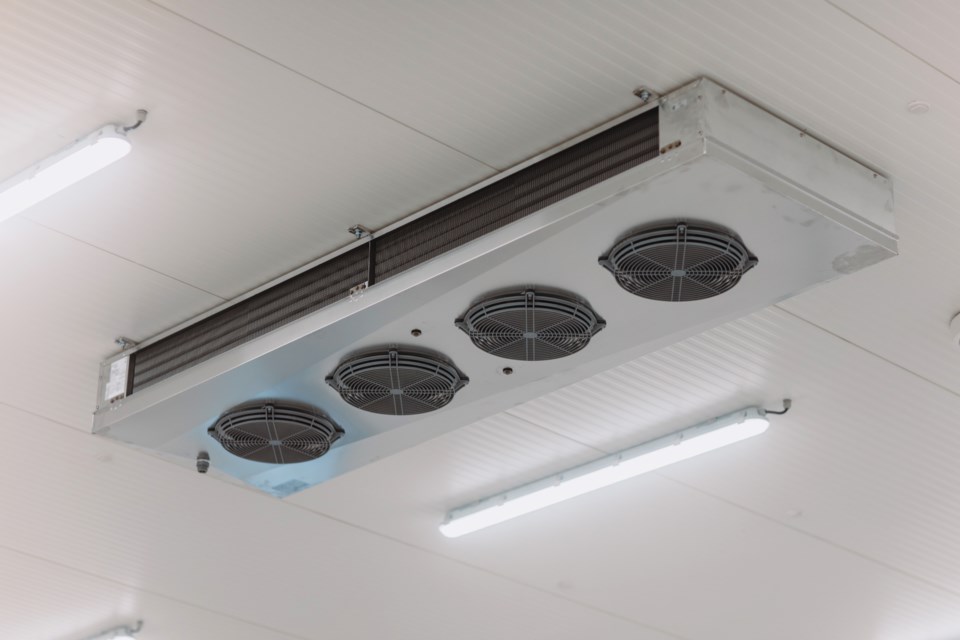The Resort Municipality of Whistler (RMOW) is moving to ban once-through cooling (OTC) systems, a water-intensive technology still used in local hotels, restaurants and grocery stores, by the end of the decade.
OTC systems, commonly found in ice machines, walk-in coolers, air conditioners and other commercial appliances, use a steady flow of drinking water to absorb heat before discharging it directly into the sewer.
According to RMOW staff, a single small-to-medium OTC unit consumes about 1.6 million litres of potable water annually—enough to fill half an Olympic-size swimming pool. Another estimate found Whistler’s existing OTC systems use more than 54,000 cubic metres of treated drinking water every year—the equivalent of 34 Olympic-size swimming pools.
“Because these once-through systems require a continuously running supply of cold water, which is then discharged into the sewer, they are considered wasteful, putting undue pressure on Whistler’s water supply and our wastewater system,” utilities manager Chris Wike explained in a June letter to business operators.
The bylaw amendments, given first three readings at the Sept. 2 council meeting, prohibit new OTC installations after Dec. 31, 2025, and require all existing systems to be disconnected from Whistler’s potable water supply by Dec. 31, 2030.
On peak days this summer, water demand came close to or dipped below reservoir levels considered necessary for fire protection. That’s the result of 11 years of below-average precipitation and a 7.2-per-cent increase in water demand over the last decade.
“The primary function of Whistler’s water system is to provide safe drinking water and to ensure we have enough supply for firefighting purposes,” Wike wrote. “With these functions alone, Whistler’s drinking water system is already near capacity on peak days. This means we need to take measures now to reduce our reliance on our water supply for non-essential use”.
Other B.C. jurisdictions—including Vancouver, Abbotsford and the Capital Regional District—have already prohibited OTC systems.
Impacts to local businesses
On June 27, to prepare affected businesses, the municipality sent 230 letters to local hotel, restaurant and grocery operators, explaining the OTC phase-out and soliciting feedback through a survey. That survey only produced 19 responses, eight of which reported using OTC units. One business cited replacement costs ranging from $15,000 to $70,000 per system. Others called for a three- to-five-year transition period.
Councillor Jen Ford voiced concern for small businesses already facing steep costs during the Sept. 2 meeting.
“It’s not just the cost of replacing the refrigerator, but also the installation. It may require costly renovations to the building, and they may not be allowed to do that if they’re renting,” she said. “There’s a lot of costs to this that I think are concerning for businesses.”
At the same time, Ford stressed she did not want to delay the bylaw’s adoption, acknowledging that the five-year transition gives operators time to adjust. Staff also said alternatives such as air-cooled or closed-loop water-cooled systems are readily available in markets where OTC equipment has been banned.
Coun. Jeff Murl noted while OTC systems once offered reliable cooling, they are increasingly hard to justify.
“My one concern with this process has been that it seems like we’re striking the anvil with two hammers,” he said, referring to both the new bylaw and the upcoming rollout of volumetric water billing.
“But the five-year timeline, I think, is the saviour for me. Over that five years, [operators will] start to see and start to pay the cost of that, and they’ll see the value in making that switch.”
Coun. Ralph Forsyth called for a “pull campaign, not a push campaign” to bring operators on-side and get them to understand the change well before the 2030 deadline.
When volumetric billing begins—likely in 2026, according to Wike’s letter—OTC systems will become far more expensive to operate.
Alongside the OTC ban, council also considerd an enforcement bylaw, creating a $500 ticketable offence for failing to disconnect equipment after 2030.
“This is an important component of Whistler’s water conservation program,” staff concluded in their report. “It will conserve potable water for core needs within the RMOW and reduce the demand on the potable water and wastewater systems.”
The bylaws will return for adoption at a future meeting.




